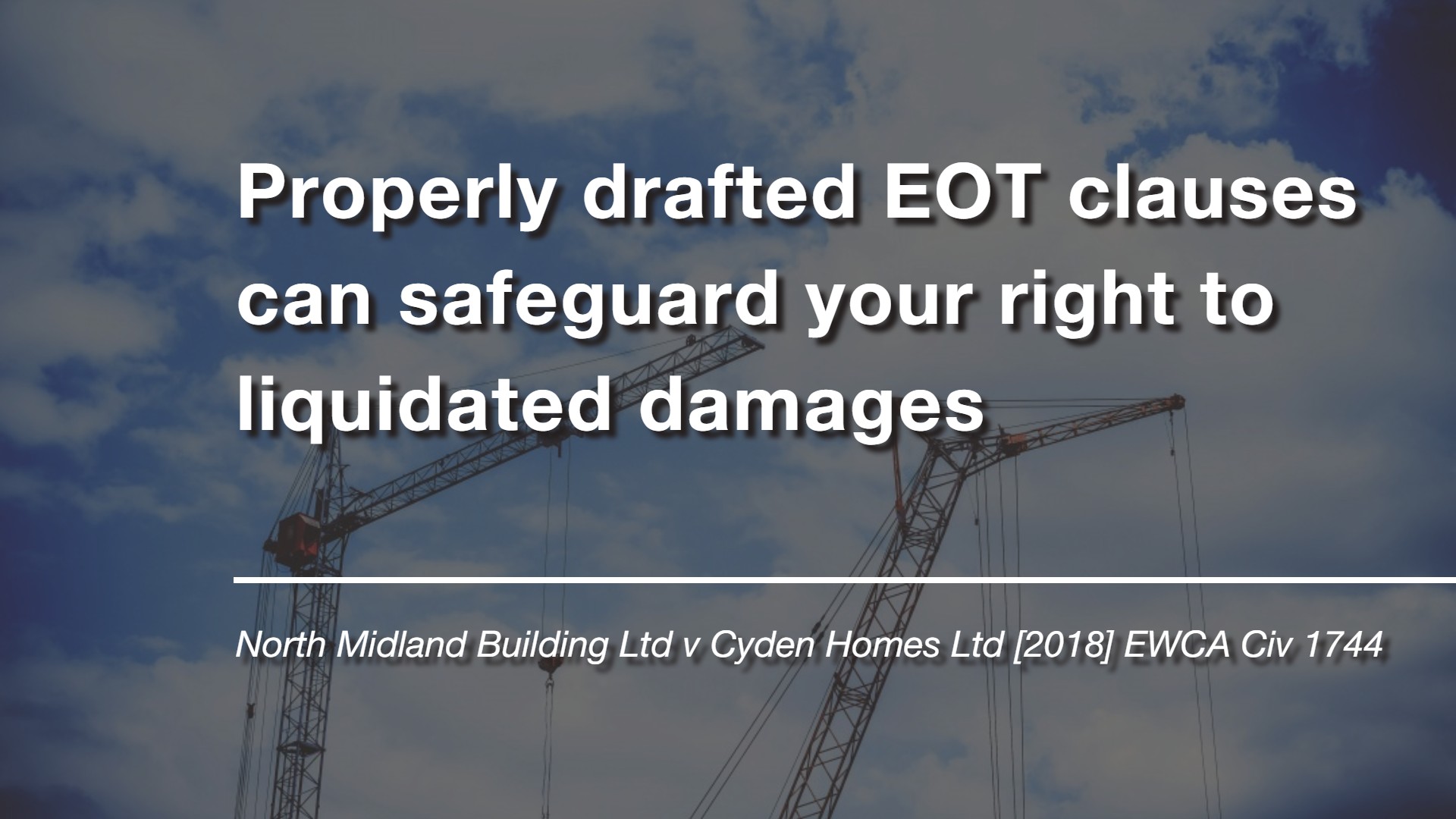The UK Court of Appeal has unanimously held that the prevention principle will not be ‘engaged’ by concurrent delay, and even if it was, it is not an overriding rule of public or legal policy – an unambiguous contractual term can thus exclude the operation of the prevention principle.
Prevention Principle
The ‘prevention principle’ is the principle that a party cannot insist on the other party’s performance of a contractual obligation if it itself is the cause of the other party’s non-performance. In practice, the prevention principle would stop a principal from applying liquidated damages for late completion where the principal has caused the delay by directing a variation.
Facts
Cyden Homes Ltd (Cyden) entered into a contract with North Midland Building Ltd (North Midland) to build a house, and the project was delivered late. North Midland claimed it was entitled to an extension of time (EOT).
The Court of Appeal was required to consider the validity of a clause which provided that any award of an EOT is subject to the condition that:
‘any delay caused by a Relevant Event which is concurrent with another delay for which the Contractor is responsible shall not be taken into account…’
North Midland argued that the clause was of no effect because it was contrary to the prevention principle.
Decision
The Court of Appeal delivered a compelling rejection of North Midland’s argument, deciding that the clause was valid and the prevention principle did not apply, because:
- Building contracts involve a detailed allocation of risk and reward and contracting parties are free to allocate the risk of concurrent delay.
- The clause is unambiguous and seeks to allocate the risk of concurrent delay to North Midland.
- The prevention principle can only sensibly operate by way of implied terms and therefore cannot override express contractual terms.
- The prevention principle is not engaged by concurrent delay and even if it was it is not an overriding rule of public or legal policy.
- Parties can exclude the prevention principle by agreement.
Takeaway
The Court of Appeal is the second highest court in the UK, and therefore the decision will be of particular interest in Australian dispute resolution forums. The approach is in line with the decisions of the NSW Court of Appeal and Supreme Court of Western Australia, whom have both held that the prevention principle can be excluded by contract. You can find our earlier updates following the decision of the NSW Court of Appeal here and the Supreme Court of Western Australia here.
As the UK Court of Appeal interpreted this clause to be clear and unambiguous, a similarly drafted clause is likely to safeguard a principal’s position in the event that a principal-caused delay is concurrent with delay for which the contractor is responsible. Properly drafted EOT clauses may exclude the prevention principle such that a principal will still be entitled to apply liquidated damages in the event of concurrent delays and/or principal-caused delays.



